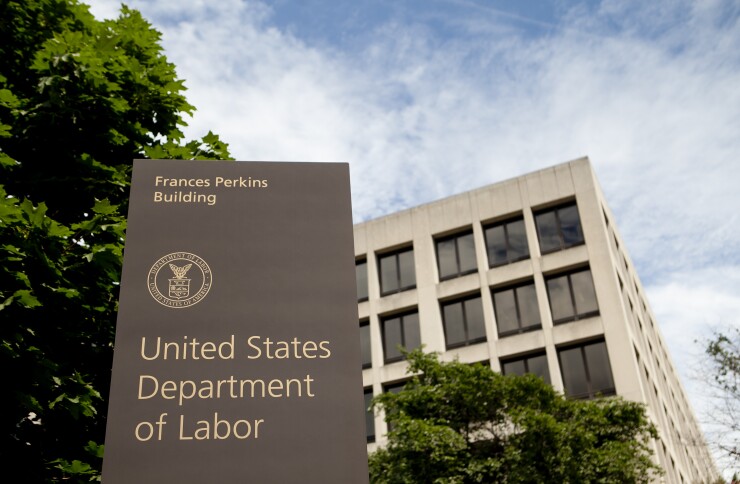The economy added a whopping 528,000 jobs in July, the U.S. Bureau of Labor Statistics reported Friday, while the unemployment rate fell one-tenth of a point to 3.5%, a level not seen since before the pandemic.
Analysts had predicted a gain of less than half that amount, with Dow Jones forecasting 258,000. Despite the unexpectedly high job gains, the figures did indicate a loss of 1,500 jobs in accounting and bookkeeping services. However, overall employment in professional and business services continued to grow last month, adding 89,000 jobs in the sector. Overall employment in professional and business services was 986,000 higher last month compared to February 2020 before the start of the pandemic. Other sectors that saw the most job gains were leisure and hospitality, which added 96,000 jobs, and health care, which gained 70,000 jobs. Employment in financial activities such as banking also continued to trend up in July, gaining 13,000 jobs.
The BLS also revised upward the job numbers for both May and June, upping the figures for May by 2,000, from 384,000 to 386,000, and for June by 26,000, from 372,000 to 398,000. With both revisions, employment in May and June combined was 28,000 higher than the Labor Department previously reported.

Average hourly earnings rose by 15 cents, or 0.5%, in July, to $32.27. Over the past 12 months, they've increased 5.2%.
The White House praised the results. "Today's jobs report shows that the economy added 528,000 jobs in July," President Biden tweeted. "More people are working than at any point in American history. That's no accident, it's results."
However, the labor force participation rate showed little sign of changing, as the impact of the so-called Great Resignation continued despite high inflation. The labor force participation rate of 62.1% was little changed in July and remained below its value in February 2020 of 63.4%.
"Even with an unanticipated surge in jobs, America's workforce in July continues to shrink — now three of the last four months — leaving Main Street businesses struggling to find workers," said Rep. Kevin Brady, R-Texas, the top Republican on the tax-writing House Ways and Means Committee, in a statement. "The Manchin-Biden Build Back Better bill will worsen the workforce shortage with lavish health care subsidies that provide more affordable health care to the jobless than to those returning to work, on top of crushing tax hikes on 'Made-in-America' manufacturers. None of this makes any economic sense."
House Ways and Means Committee chairman Richard Neal, D-Massachusetts, seemed to respond to Brady's comment shortly afterward on Friday morning, and pushed for passage of the Inflation Reduction Act after Sen Kyrsten Sinema, D-Arizona, reportedly agreed to a deal in exchange for dropping the carried interest provision and modifying the corporate minimum tax rate by exempting depreciation tax deductions.
"The jobs recovery from COVID is now complete," he said in a statement. "With another incredible month of broad-based job gains, all of the jobs lost under President Trump are back. The unemployment rate has fallen to its 50-year low and wages are rising. … Some are puzzled by the stubborn labor participation rate, but the Ways and Means Committee has heard loud and clear that the lack of basic workplace supports are holding women and people of color back. … Americans are working, the Inflation Reduction Act is on a glide path through the Senate, and the House will quickly follow in getting this cost-cutting legislation to President Biden's desk."
Separately, Top 100 Firm CBIZ reported its monthly
In July, 24% of companies increased their head counts, according to CBIZ, while 55% reported no change to their employment totals, and 21% decreased their staffing. Rental and leasing services and construction showed the biggest gains in employment. Educational services, not-for-profits, and arts entertainment and recreation experienced the largest decreases in hiring. Due to high mortgage rates and higher home prices affecting home affordability, rental and leasing services maintained strength in hiring as Americans seek rental opportunities.
On a regional level, the Northeast and Southeast saw the biggest increase in hiring, while the West experienced a decline in hiring, and the Central region showed a flat reading. CBIZ attributed the reading for July as reflecting budget tightening by consumers as food and energy take up more of their take-home pay.





